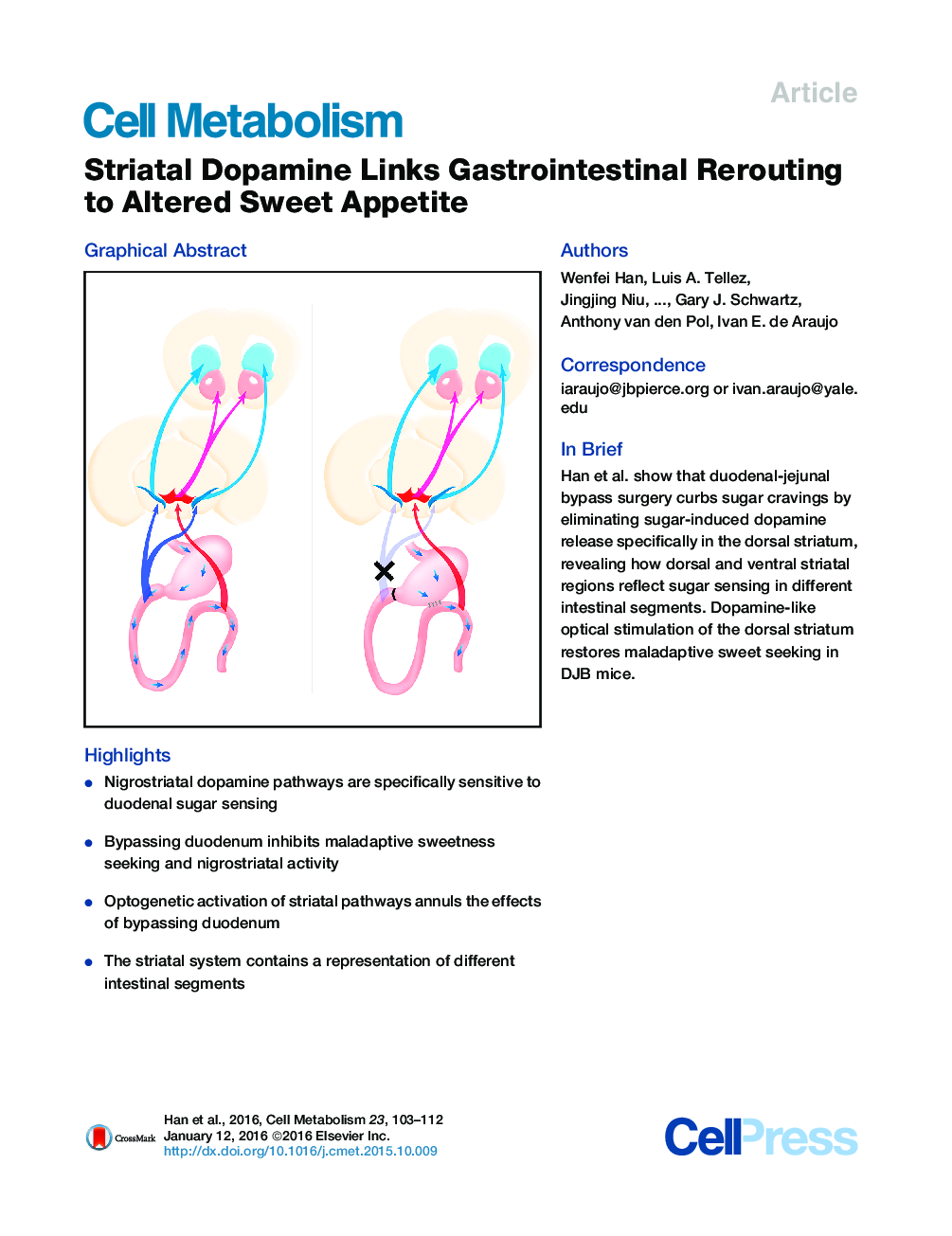| Article ID | Journal | Published Year | Pages | File Type |
|---|---|---|---|---|
| 2792579 | Cell Metabolism | 2016 | 10 Pages |
•Nigrostriatal dopamine pathways are specifically sensitive to duodenal sugar sensing•Bypassing duodenum inhibits maladaptive sweetness seeking and nigrostriatal activity•Optogenetic activation of striatal pathways annuls the effects of bypassing duodenum•The striatal system contains a representation of different intestinal segments
SummaryReductions in calorie intake contribute significantly to the positive outcome of bariatric surgeries. However, the physiological mechanisms linking the rerouting of the gastrointestinal tract to reductions in sugar cravings remain uncertain. We show that a duodenal-jejunal bypass (DJB) intervention inhibits maladaptive sweet appetite by acting on dopamine-responsive striatal circuitries. DJB disrupted the ability of recurrent sugar exposure to promote sweet appetite in sated animals, thereby revealing a link between recurrent duodenal sugar influx and maladaptive sweet intake. Unlike ingestion of a low-calorie sweetener, ingestion of sugar was associated with significant dopamine effluxes in the dorsal striatum, with glucose infusions into the duodenum inducing greater striatal dopamine release than equivalent jejunal infusions. Consistently, optogenetic activation of dopamine-excitable cells of the dorsal striatum was sufficient to restore maladaptive sweet appetite in sated DJB mice. Our findings point to a causal link between striatal dopamine signaling and the outcomes of bariatric interventions.
Graphical AbstractFigure optionsDownload full-size imageDownload high-quality image (195 K)Download as PowerPoint slide
